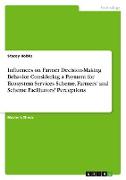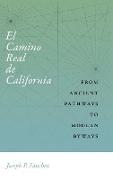- Start
- Influences on Farmer Decision-Making Behavior Considering a Payment for Ecosystem Services Scheme. Farmers' and Scheme Facilitators' Perceptions
Influences on Farmer Decision-Making Behavior Considering a Payment for Ecosystem Services Scheme. Farmers' and Scheme Facilitators' Perceptions
Angebote / Angebote:
Master's Thesis from the year 2021 in the subject Environmental Sciences, grade: 1, University of Gloucestershire (University of Gloucestershire), course: Masters by Research Environmental Sciences, language: English, abstract: Agricultural diffuse pollution from metaldehyde (the most common active ingredient used in slug pellets) is a major concern in the UK as its rivers have frequently recorded levels of the pesticide unsafe for potable consumption. Payments for ecosystem services (PES) has gained popularity as a mechanism to generate improved environmental behaviours from farmers by offering them an incentive to manage their land to provide specific environmental benefits. To improve water quality at the point of extraction, Thames Water has used the PES approach to tackle agricultural diffuse pollution from metaldehyde. While there is a wealth of knowledge in the theoretical and experimental fields of PES, few empirical studies have examined how PES schemes encourage and sustain improved behaviours. To address this gap, this study investigated the influences on farmer decision-making behaviour considering their participation in Thames Water's PES scheme in four catchments. Data collection comprised semi-structured interviews with 22 farmers and 8 project partner advisors (scheme facilitators) to gain insight into their perceptions of Thames Water's PES scheme concerning: the drivers and barriers for farmer participation, strategies used by the project partner advisors to support farmers' participation and behavior change, and the success and sustainability of the scheme in changing farmers' behaviours and attitudes towards metaldehyde. The results concluded farmers' motivations for scheme enrolment were mainly dominated by non-economic motivations, with the provision of information, environmental enhancement and moral obligation particularly influential. Project partner advisors emphasized the need for a holistic approach towards improving water quality through their provision of advice to farmers and, in particular, providing tailored advice to each farmer. Crucially, behavioral and attitudinal changes in farmers' metaldehyde use were observed, with farmers improving their land management practices due to a better understanding of the environmental impacts of metaldehyde and more sustainable methods for slug management.The aim of this study is to inform the development of existing and future PES schemes as mechanisms for encouraging farmers' voluntary behavior change and assist those responsible for the facilitation of PES schemes to increase farmer engagement and generate advice that better resonates with farmers to achieve environmental goals.
Folgt in ca. 10 Arbeitstagen



